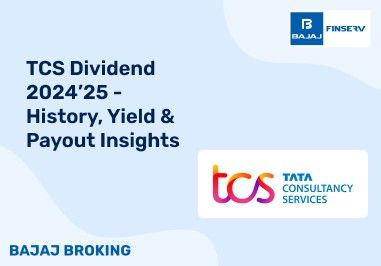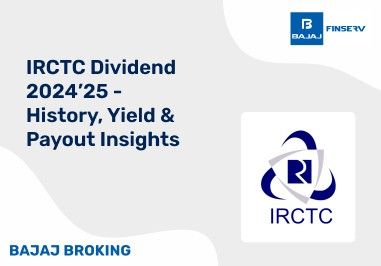BAJAJ BROKING
Tankup Engineers IPO is Open!
Open a Free Demat Account
Trade Now, Pay Later with up to 4x
Track Market Movers Instantly
Direct vs Regular Mutual Fund Schemes: Know The Difference
When it comes to investing in mutual funds, choosing between direct and regular plans can significantly impact your returns. The landscape of mutual fund investments has evolved dramatically over the years, offering investors a wide range of options to suit their varying financial goals and risk appetites. Among these options, the choice between direct and regular mutual fund schemes stands out as one of the most crucial decisions investors need to make.
This differentiation is rooted on the premise of the presence of intermediary or the distribution commission. In case of the direct mutual fund, the intermediary is not needed and the distribution commission is not solicited. However, in the case of a regular mutual fund, the intermediary is present and the distribution commission is solicited.
Before you read more about the differences between direct and regular mutual fund schemes, here is a general idea about the mutual funds and their types.
Highlights
- Definition of Mutual Funds
- Direct Mutual Fund
- Regular Mutual Fund
- Direct vs Regular Mutual Fund
- Conclusion
What is Mutual Fund
A mutual fund is an investment fund for which multiple investors come together to invest in a group of securities, stocks and bonds. Mutual funds mainly offer diversification of portfolio and higher liquidity of assets, even though there is a risk of illiquid assets included in the portfolio.
In India, the first mutual fund was established by the government of India in 1963. As of now, 44 companies offer mutual fund schemes in India. Though mutual funds are susceptible to market risks and it is advised to read the offer documents carefully, the investments in mutual funds have shown significant resilience and adaptability in the recent years when the global economy struggled in wake of multiple crises.
The two basic types of mutual funds are direct and regular plans, which are primarily differentiated on the basis of who is managing your mutual fund account.
Regular Mutual Fund Plan
This is the standard mutual fund plan in which your account is supervised by a financial advisor, who is an intermediary managing your mutual fund in return for a commission or a fee. The financial advisor is responsible for monitoring your mutual fund account, drafting your investment objective and creating a risk assessment plan.
Direct Mutual Fund Plan
A direct mutual fund plan is a simple approach where the account holder of a mutual fund operates the account and does the decision-making. The account holder is responsible for the monitoring of the account, setting up of the investment objective, and creating a risk assessment plan. This plan mainly works for those who have considerable investment experience and is not advisable for amateur investors.
Direct vs Regular Mutual Fund Scheme: The Differences
The key differences between direct and regular mutual fund schemes are listed below:
- Financial Advisor: In the case of a regular mutual fund scheme, a financial advisor is a key pivot. In the case of a direct mutual fund scheme, the investor on its own manages the mutual fund account.
- Net Asset Value: The Net Asset Value, NAV, of a regular fund is lower than the direct mutual fund scheme. It is because the commission and brokerage of a financial advisor becomes an additional expense in case of a regular fund, which impacts the net asset value. In comparison, the NAV is higher in the case of direct mutual fund schemes.
- Profit: The profit from the direct mutual fund schemes is higher compared to regular fund schemes. It is because the expenses ratio is lower in direct mutual fund schemes as compared to regular fund schemes.
- Risk: The risk susceptibility can be higher in direct mutual fund schemes as compared to regular fund schemes. It is because financial advisors present in regular fund schemes are trained and experienced people who continuously monitor the markets. The advise, training, experience, and continuous monitoring of the market is missing in the direct mutual fund.
Direct Mutual Fund | Regular Mutual Fund | |
Financial Advisor | No | Yes |
Net Asset Value | High | Low |
Returns | High | Low |
Risk | High | Low |
How to Identify: Direct vs Regular Mutual Fund
If you are confused in identifying direct vs regular mutual funds, the solution is simple but requires experience in understanding.
- Name: The name of the fund is the first giveaway. If the fund name has regular in it, it is a regular mutual fund. In case the fund name has direct, or dir, in it, it is a direct mutual fund.
- NAV: The higher Net Asset Value means it is a direct mutual fund, while the lower Net Asset Value means it is a regular fund scheme.
Conclusion
Once you are clear that you want to invest in mutual funds, you must firstly understand whether you would be able to manage and monitor your mutual fund account. If you are an experienced investor who is regular at keeping tabs of the market, then you can opt for the direct mutual fund scheme and save part of the fee that would have gone into hiring the services of financial advisors. However, if you are new and inexperienced, you must invest in a regular mutual fund scheme. Understanding the differences of direct vs regular mutual fund schemes can save you from losses.
Disclaimer: Investments in the securities market are subject to market risk, read all related documents carefully before investing.
This content is for educational purposes only. Securities quoted are exemplary and not recommendatory.
For All Disclaimers Click Here https//bit.ly/3Tcsfuc
Share this article:
Read More Blogs
Disclaimer :
The information on this website is provided on "AS IS" basis. Bajaj Broking (BFSL) does not warrant the accuracy of the information given herein, either expressly or impliedly, for any particular purpose and expressly disclaims any warranties of merchantability or suitability for any particular purpose. While BFSL strives to ensure accuracy, it does not guarantee the completeness, reliability, or timeliness of the information. Users are advised to independently verify details and stay updated with any changes.
The information provided on this website is for general informational purposes only and is subject to change without prior notice. BFSL shall not be responsible for any consequences arising from reliance on the information provided herein and shall not be held responsible for all or any actions that may subsequently result in any loss, damage and or liability. Interest rates, fees, and charges etc., are revised from time to time, for the latest details please refer to our Pricing page.
Neither the information, nor any opinion contained in this website constitutes a solicitation or offer by BFSL or its affiliates to buy or sell any securities, futures, options or other financial instruments or provide any investment advice or service.
BFSL is acting as distributor for non-broking products/ services such as IPO, Mutual Fund, Insurance, PMS, and NPS. These are not Exchange Traded Products. For more details on risk factors, terms and conditions please read the sales brochure carefully before investing.
Investments in the securities market are subject to market risk, read all related documents carefully before investing. This content is for educational purposes only. Securities quoted are exemplary and not recommendatory.
For more disclaimer, check here : https://www.bajajbroking.in/disclaimer
Our Secure Trading Platforms
Level up your stock market experience: Download the Bajaj Broking App for effortless investing and trading













